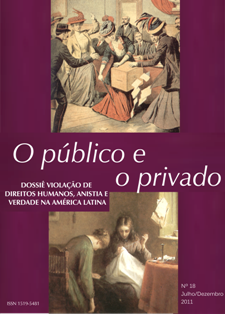The social genocidal practices in Uruguay (1973-1985)
Keywords:
Genocidal social practices, Class war, Prison prolonged, Clandestine Reclusion Centers, Power technologyAbstract
In the framework of the National Security Doctrine in South America were introduced civil-military dictatorship under the guise of fighting communism within the borders. This allowed to implement neoliberal economics deepening social inequality.In this context, the technology of power that framed a dictatorial process was genocidal social practice.The object of study is the dictatorship in Uruguay from 1973 to 1985, presented as genocide because, despite the repressive device used was prolonged imprisonment, is considered in this work that the social practice of genocide is not determined by the number of victims fatal but by the sense of the social bond reorganized since its implementation. It analyzes documents produced by agencies of Uruguay from a class struggle between social forces competing interests.











